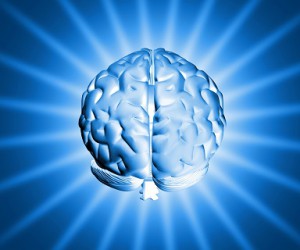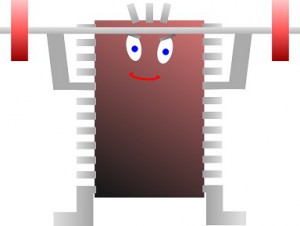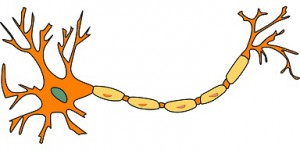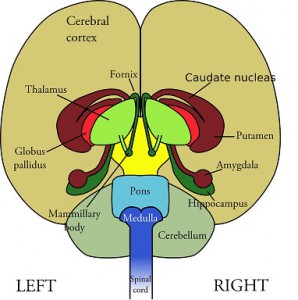Introduction
Hi everyone and welcome. We are aware by now that there is a relationship between tinnitus and the brain. Today I want to discuss this relationship a little bit more.
I want to talk about what actually happens to the brain of someone who is suffering from tinnitus.I had come to know of an interesting piece of research that had taken place that got me asking more questions on tinnitus and exploring or revisiting the treatments that we currently use.
It fits a few more pieces into this puzzle of understanding tinnitus and paves a clearer path to its management and treatment.
So lets get started!
The Brain
Here are some interesting facts of the brain that you may or may not have known.
- The brain uses 20% of the total oxygen that is supplied to the body
- The brain feels no pain, because there are no pain receptors in it.
- It’s almost the same size at birth as an adult brain, and contains all the cells for your entire life at this time.
- The brain has blood vessels that stretch up to 100 000 miles long.
I can go on and on with more wonderful facts about the brain, but I think you get the point.
We know that the brain is the CPU(central processing unit), or control center of the body. Think of it as the microchip for the computer. Our body is the computer and needs the microchip(the brain) to function at its best.From our intelligence,to the use of our senses, to the body movement and behavior , nothing can function to its optimal level without the involvement of the brain.
The human brain has 100 billion neurons, each neuron connected to 10 thousand other neurons. Sitting on your shoulders is the most complicated object in the known universe.”- Michio Kaku taken from www.brainyquote.com
Okay, we know that by definition, ” tinnitus is a noise that generates in the ear rather than in the environment.”
This tinnitus comes about through various ways such as when the person has been subjected to loud noise, Menieres Disease, certain tumours, medication , TMJ( Temporamandubular Joint) or even a build-up of ear wax
We also know that the intensity varies from one person to the next.
Tinnitus may be present in a huge population with only a few really reporting a significant impact in their lives.
Why is this so?Why is it that some people have it worse than others?
The answer lies within our brains.And I mean this both literally and figuratively!
What actually happens to the brain in someone who is suffering from Tinnitus?
A new study revealed an interesting connection between brain activity and tinnitus.It showed that defects that occur within the brain can cause the person to experience tinnitus that may last longer than usual and be more pronounced or noticeable.
Control pathways to the Brain Compromised
The researchers found that after the brain was subjected to an injury such as exposure to loud noise for instance, the control pathways was affected.
What actually happens is that the brain looses the ability to control the pathways that are responsible for regulating noise and pain signals, which in turn leads the person to perceive noises as well as experience pain.
Brain reprogramming.
So to compensate for this loss,the brain “re-programs” itself, and it is this reprogramming that gives the person these ‘phantom,’ noises which is characteristic of tinnitus.
Why is it called ‘phantom’ sensations?. Because these noises are subjective and can only heard by the person and therefore classified as ‘un-real.’
Professor Rauschecker of the Director of Laboratory for Integrative Neuroscience and Cognition at the GUMC( Georgetown Medical Center in Washington) , concluded that these perceptions are indeed real as a result of the brain unable to switch off the sensations to a low-enough degree.
He further added that, ” though the noise and associated pain are extraordinarily common, no treatment exists yet to get to the root of these disorders.”
So what part of the brain is affected?
The study revealed that areas known as Nucleus Accumlens and Areas of the Prefontal Cortex are the ones which are affected and ultimately leads to tinnitus.
Link between depression, stress and anxiety
What else was interesting in this study of tinnitus and the brain was that the Nuclues Accumlens was also responsible for interpreting signals that were characteristic of conditions such as depression, long term stress and anxiety.
There is Hope
Knowing the areas of the brain that is responsible for producing theses effects gives us hope. As now, we are able to follow a direction which may lead in actually treating or managing the condition.
Should the pathway which the brain so-called ‘ lost control,’ be restored then we will be able to minimize or alleviate our tinnitus altogether.Boy, does that sound like music to my ears…..
Conclusion
This might also explain a little better why certain things we already have been doing works.Things like yoga, meditation,exercise, nature escapes all have an effect on the stress and anxiety levels.Furthermore, they are uplifting to ones spirit,so they have a so-called natural ‘antidepressant’ effect.
This further opens the door to the use of other alternatives. Things like natural carminative’s and mood lifters.Herbal oils and homeopathic tissue salts.I will investigate these in further posts and offer to you my findings as time goes on.
For now, I leave you with a quote from Dr Markus Ploner, PhD , a consultant neurologist who was also involved in the above-mentioned study.
Better understanding could lead to standardized individual assessment and ultimately reduce the risk for chronic tinnitus, which in turn might allow for earlier and more targeted treatment.”
Your say
As always your input or share on this article about tinnitus and the brain is valued and appreciated.Kindly let me know your thoughts.I would love to hear from you.
Thanks for stopping by.
Kind Regards
Roopesh

I really loved the article. I had no idea that there even was a connection between tinnitus and the brain. Our brains are so complex and effects every aspect of our lives, it only makes sense that illnesses like tinnitus will effect the brain somehow. Keep up the good writing, these are facts that everyone should know.
Hi Mercedez
Thank you for your input.I most definitely agree with you regarding the brain been complex.It is truly amazing, how such an organ is responsible for everything that we are able to do from sunrise to sunset.
I think what’s even more amazing is that using our brains we are able to develop cutting edge technology to further understand the mechanics of the brain and its relationship to tinnitus as is mentioned in this article
Thank you so much for your compliment on my writing.This is my ultimate desire to educate and help people learn more about tinnitus via my site,so that they can live life a bit more comfortable, the way it should be.
Take Care and All the best.
Roopesh
That’s crazy, I never realized brains couldn’t feel pain, or even that they are basically the same size from birth! And even though you may not feel it, tinnitus seems scary anyways, I wouldn’t want it, and I’d definitely try to fix it as fast as I possibly could! Do you know anyone that has it personally? Or are you a doctor?
Matt TheDopestMatrix
Hi Matt
Thanks for your comment.
Yes, these facts about the brain really amazes me too. There was so much more that I wanted to include about the brain itself but then the point of the whole article would be lost.
I am not a doctor but a pharmacist by profession. I am deaf in my right ear and have the tinnitus in my left ear. So you can imagine how difficult it is to cope on a day-to-day basis with communicating with the outside world.
I have developed this website to offer information, treatment options and most importantly hope to other tinnitus sufferers so that it can make life more manageable and easier for them.
Furthermore, I want people to feel that they are not alone and should they need to talk or ask anything, I am just a click of a button away.
Thank Matt, and Take Care
Roopesh
Hard to cope with the humming everyday getting scared
I understand you completely. So sorry, wish that I could take it away.
My tinnitus started right after my husband passed in Oct 2018 (his death expected due to heart issues and other medical problems). My tinnitus varies from loud to not noticeable. I live with it. Bothered me at first but you get used to it. I now understand it originates in the brain, how curious. Not much to do about it at this time apparently. Healing Medbeds will be coming forward as technology hidden from humanity for 1000’s of years is scheduled to come forth. Wait for it. Research it.
That sounds interesting will be waiting for it. Let’s see how it goes.Thanks so much for stopping by.
Regards
Roopesh